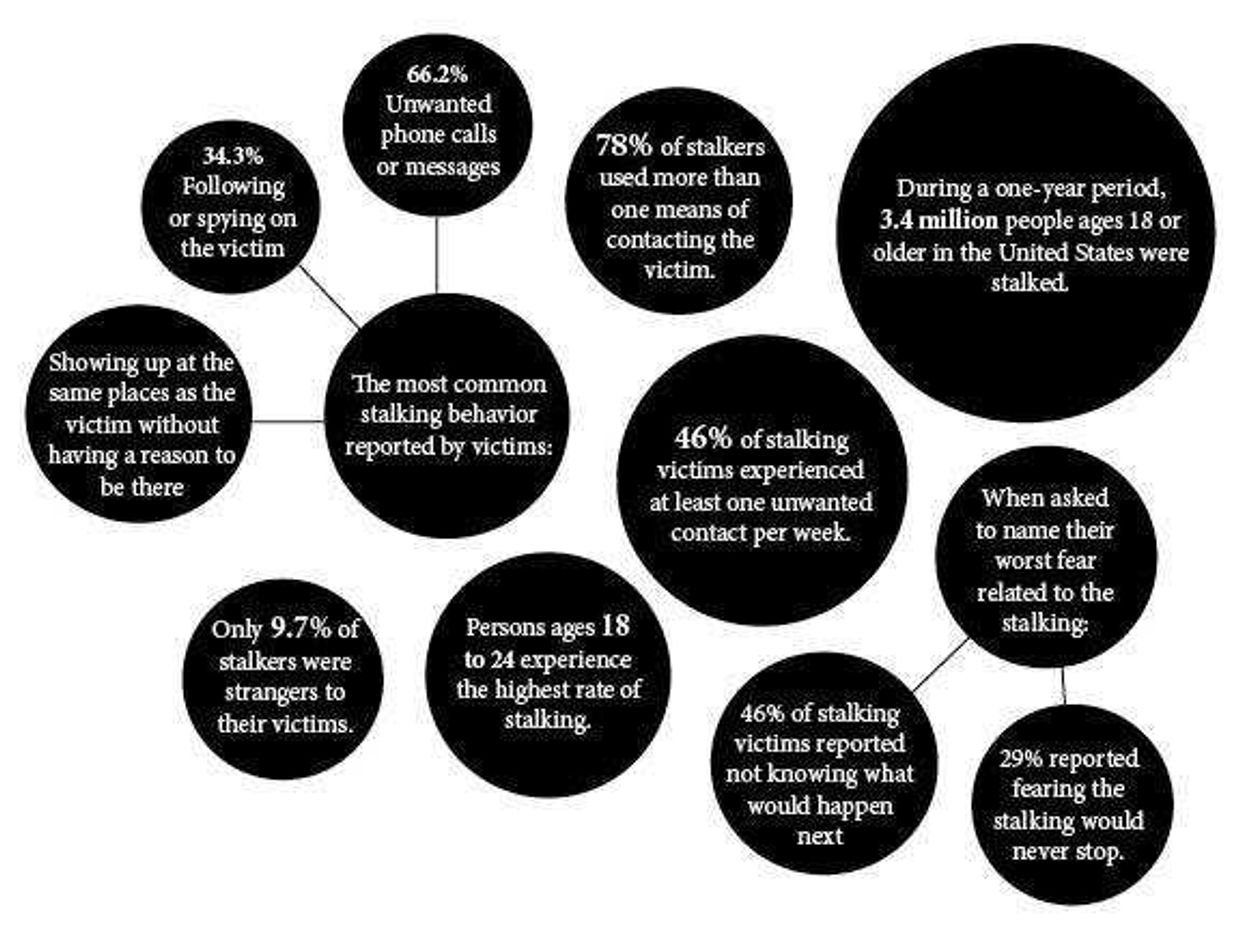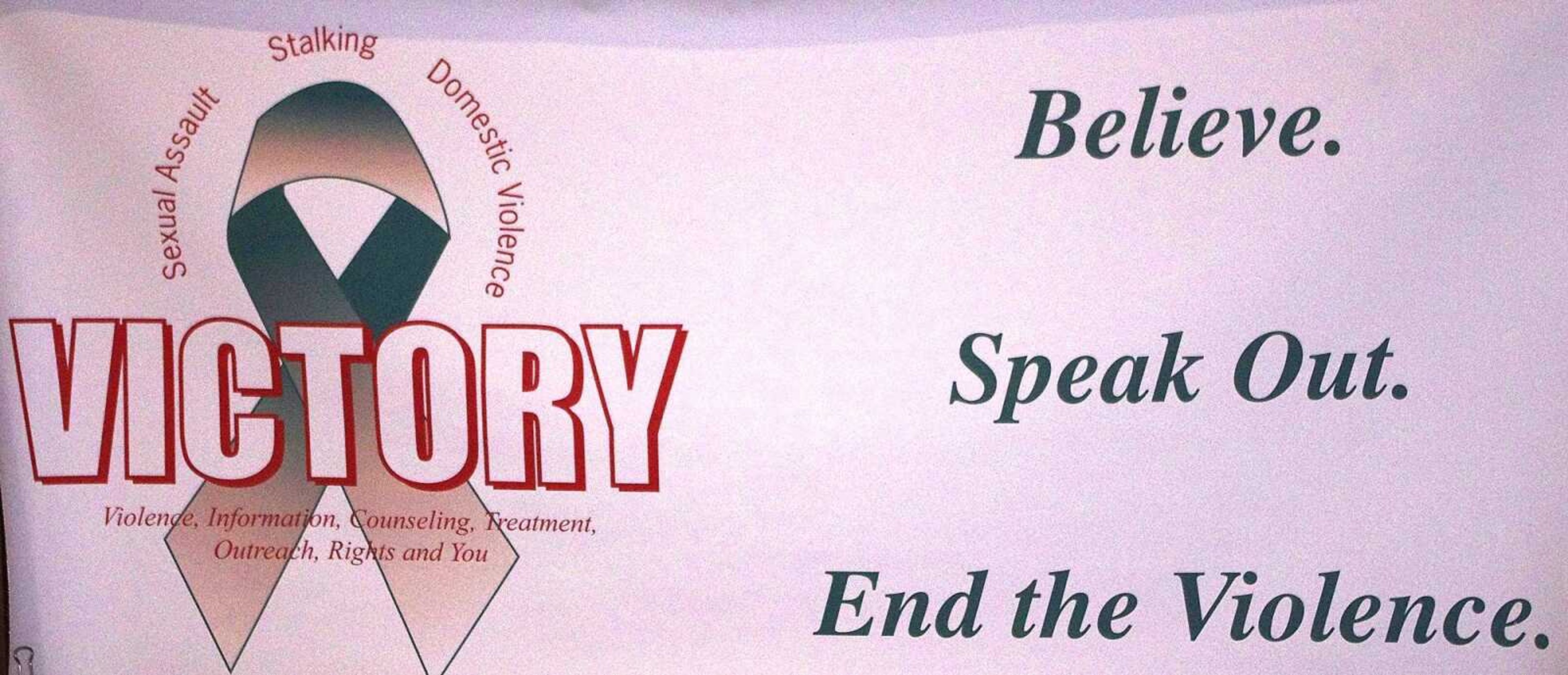Southeast VICTORY Program promotes awareness of stalking
The VICTORY Program at Southeast promotes awareness of the realities of dating violence, domestic violence, sexual assault and stalking. The month of January is Stalking Awareness Month.
Like most Southeast Missouri State University freshmen, multimedia journalism major Bailey McCormick stayed in a residence hall. In fall 2009, Bailey and her roommate at Towers Complex started receiving threats from someone using a fake Facebook account.
The unknown individual claimed to know her whereabouts and used crude and mean language in daily messages. McCormick wasn't sure what to do, until one day this unknown person started to threaten violence. It was at this point she contacted the Cape Girardeau Police.
Through the police, she found out that this person lived in the same residence hall as her, but she was never able to find out who it was. After the police were contacted, the harassment, which lasted about a month, stopped.
According to victimsofcrimes.org, stalking is defined as a "course of conduct directed at a specific person that would cause a reasonable person to feel fear."
The VICTORY Program at Southeast promotes awareness of the realities of dating violence, domestic violence, sexual assault and stalking. The month of January is Stalking Awareness Month.
Project coordinator for the VICTORY Program Millicent Odhiambo said students often do not understand that they are being stalked. She said that is why the National Center for Victims of Crime launched Stalker Awareness Month in 2004.
"Students may see this type of behavior as creepy or annoying, but things can escalate," Odhiambo said. "For instance sending someone 40 text messages a day is not right. Somebody trying to control where you are at all times is not right."
Odhiambo said that this behavior can be taken too lightly, and sometimes it can cause students to blur abusive behavior in their interactions with others. She said that the stalking cases increased during the fall 2012 semester. According to Odhiambo, there were 10 reports of stalking on Southeast's campus last semester. These reports include both male and female students and varying types of stalking, including cyber bullying. These reports were made to either Disability Services or to the Office of Student Conduct.
According to victimsofcrimes.org, 6.6 million adults are affected by stalking every year -- 1 in 6 women and 1 in 19 men have experienced some type of stalking victimization. The site also states that a majority of these people are stalked by someone they know. Stalking is a felony charge in a third of the states across the country, though criminal in every state. According to Cape County Courthouse website, stalking is a misdemeanor in Missouri, unless a "credible threat" to the victim.
Odhiambo said stalking can occur many different ways -- through unwanted emails, gifts, phone calls, Facebook contact, calling and hanging up on an individual or even placing a GPS on someone's person or property. Stalking is more than just following someone around physically. According to victimsofcrime.org, 78 percent of stalkers use more than one approach to stalk an individual.
Odhiambo said any students who feel like they are being stalked should go to either the Office of Student Conduct or Disability Services and report the problem. The Office of Student Conduct is located in the University Center room 422. Disability Services is located in Dearmont Hall B1. The offices can place a "no contact order" on the accused, if warranted, and if the person violates this order they stand to be further disciplined. She stressed that the person who reports the crime will never be in trouble and should not be scared to get help.
The VICTORY program will hold a Stalking Awareness Month Informational Fair on Jan. 23 from 11 a.m. to 1 p.m. in the University Center Program Lounge on the third floor, offering information for students on what to do if they become a stalking victim.

.






